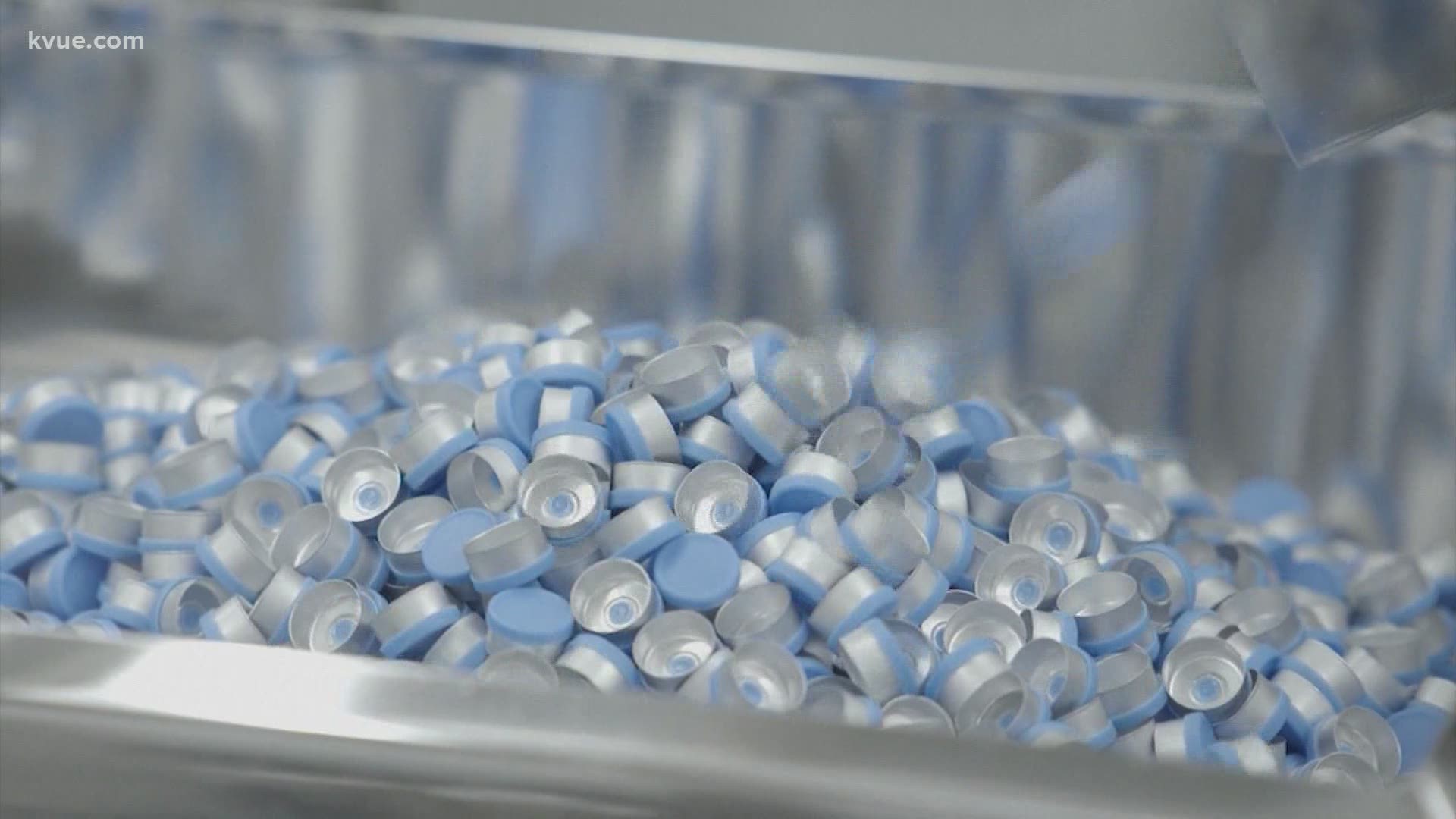AUSTIN, Texas — In Central Texas, only two counties made round one of the State's Save Our Seniors (SOS) program: Bastrop and Lee.
The Texas Division of Emergency Management (TDEM) is running the initiative, along with the Texas Department of State Health Services (DSHS) and the Texas Military Department (TMD).
The initiative is focused on high hospitalization areas around the state, which includes 26 counties this week. Counties participating in the first round of the program are Aransas, Bastrop, Brewster, Brooks, Brown, Cass, Dallas, Eastland, Freestone, Gray, Hill, Hockley, Hudspeth, Hutchinson, Irion, Lee, McCulloch, Medina, Morris, Panola, Rains, Refugio, Robertson, San Jacinto, Shelby and Webb.
The State allocated up to 8,000 vaccine doses for the first week of the program. Texans 75 years old and older or who are homebound are eligible.
The TDEM and TMD are working with local jurisdictions to set up drive-thru vaccine clinics in communities or they're administering the vaccine directly to homebound seniors.
The State considered several factors when selecting which counties to include:
- Ongoing high hospitalizations
- Number of approved providers serving the area
- Areas that reported no more than approximately a third vaccinated for seniors
- Total allocations over the previous 12 weeks
- Least vaccinated counties for both 65-plus and 75-plus administered doses
- Allocating vaccine equitably across the state
It's a program 80-year-old Austinite Wanda Harris was initially excited about.
"I thought, 'Oh, my Lord,'" she said.
Harris said there isn't enough attention for seniors.
"Not ever since these COVID shots had come out, not one time has anything been mentioned about how to, how to accommodate the seniors. It's just, at one time they did, they said, 'High risk, high risk.' They don't even mention high risk anymore," she said. "It's just you get in line and that's it. You don't know who's in line, if they're high risk, low risk, any risk. It's like they don't care anymore. In the beginning, they did. They said, 'We [have] got to do the high risk.' Well, they cast us aside now."
Dr. Charles Lerner agreed. He's a recently retired infectious disease specialist who sits on the Texas Medical Association's COVID-19 Task Force.
He doesn't like the way vaccines have been distributed, especially for seniors.
"Because we have a very poor rollout of the way vaccines are distributed. Everybody is clamoring to get a few doses, a few doses of vaccines that come out in dribs and drabs. And older people, most of them are not computer savvy," Lerner said.
Lerner said the new Johnson & Johnson vaccine will help with accessibility since the one-shot vaccine doesn't require a freezer and is stable for three months.
"That means you can go out into communities. It can be held in doctors' offices. It can be readily dealt with in drugstores across the country," Lerner said.
He also said the Johnson & Johnson, Moderna and Pfizer vaccines will help researchers develop new vaccines faster and help researchers detect diseases quicker.
"You can rapidly tailor antibody production to specific viral proteins," he said.
As for Harris, her excitement is now gone, having learned the SOS program excludes Austin in its first round.
"Austin is not a senior-friendly city anymore, and they have forgotten that we're still here. And until we're all dead and gone, we need to have a little bit of recognition," Harris said.
A total of 24,000 doses of the Johnson & Johnson vaccine are expected in Texas on Tuesday at FEMA vaccination sites like the one in Houston, according to Chris Van Dusen, the director of media relations with the DSHS.
Van Dusen also said the federal government is expected to ship more than 200,000 doses to the Lone Star State later this week or early next week.
PEOPLE ARE ALSO READING:

